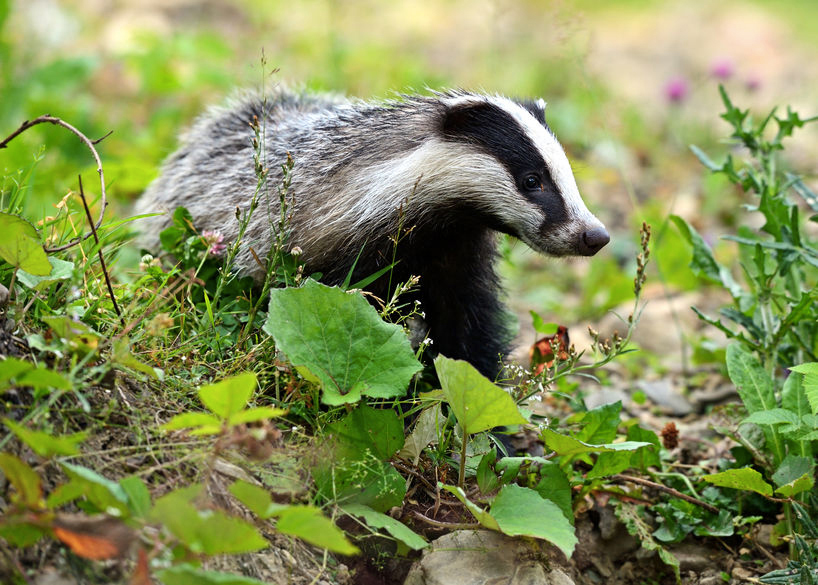
Badger culling is expected to be rolled out in parts of Wales in efforts to control the spread of TB in cattle.
Figures released by Defra show an increase of 27% in the number of cattle slaughtered in Wales due to bovine TB.
The rise prompted fresh calls for a culling programme to be extended.
Defra said bovine TB costs taxpayers over £100 million every year with England having the highest incidence of the disease in Europe.
Chief vet Professor Christianne Glossop told a symposium in London she could not be certain that culling badgers at a farm-scale level would not increase TB infection but said she wanted to try out culling in situations where all other measures had failed.
"I agree that there is a risk, but some of these farms have been under TB restrictions for over 10 years. We have removed cattle after cattle, increased biosecurity - but the farmer still has TB infection."
The Welsh government stressed that the culls would not be like those in England where culling companies shoot both infected and non infected badgers. Instead, only infected badgers would be killed humanely.
Vaccination
But NFU Cymru president Stephen James said politicians could no longer 'hide behind badger vaccination' as the reason for avoiding badger culls.
"Whilst we recognise that the bovine TB picture is more complex than just looking at one statistic, these figures should make politicians from all parties in Wales sit up and take notice of the impact that bovine TB continues to have on cattle farmers in Wales."
The farms where TB infections are high are in the South West and on the border with England. If infected badgers are found on these farms, culling could begin this year.
NFU President Meurig Raymond said bovine TB remains a huge threat to beef and dairy farmers in large parts of the country.
"More than 28,000 cattle were slaughtered in England last year because of it and nearly 4,000 herds that had previously been cldar of the disease were affected by it."
Robust solution
Speaking at the 17th Farmhouse breakfast, Farmers' Union of Wales president Glyn Roberts told Welsh assembly members that farmers should not expected to shoulder the burden of ineffective bovine TB control measures.
He said: "Nearly 10,000 cattle were slaughtered last year, in a one-sided approach to dealing with the problem.
"The results of the recent consultation show that the farmers of Wales are expecting a more robust solution that also deals with wildlife," he told Assembly Members and breakfast guests.
The group stressed that Britain was in danger of falling into the trap of forming strategy based on emotions rather than facts in political and public life.
Leading vet has told Welsh Assembly's Climate Change, Environment and Rural Affairs Committee that badger culling needs to be extended over a 'sufficiently large area' if bovine TB is to be tackled.
Dr Neil Paton, who is president of the British Veterinary Association (BVA) in Wales, said culling needed to be carried out over at least 150 sq km bordered by rivers or roads which would stop badgers fleeing.
He told the committee: "What makes a cull effective is sufficient number of badgers killed in sufficient time over a sufficiently large area. There is 50% cattle-to-cattle transmission, I’m not going to argue with that number, but where that originates from is typically from introduction from another source, and some of that source is wildlife.
"Once one cow is infected within a herd, then it spreads potentially rapidly. So unless you’ve dealt with the wildlife as part of your overall control strategy, then you are not going to get eradication."
